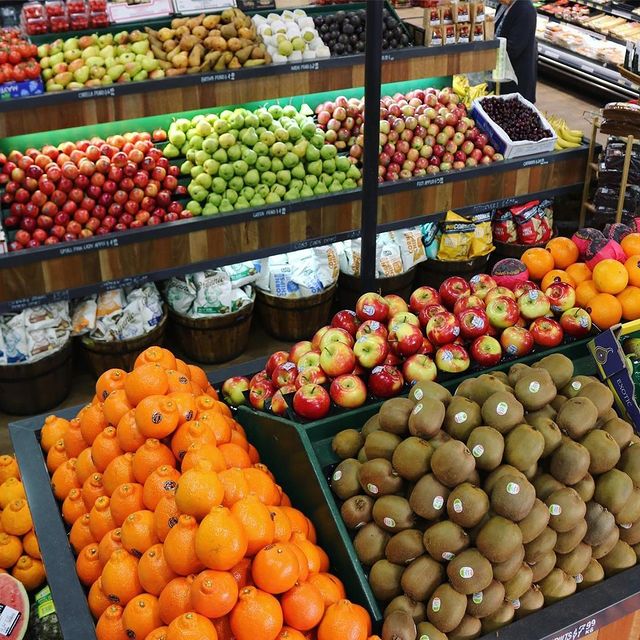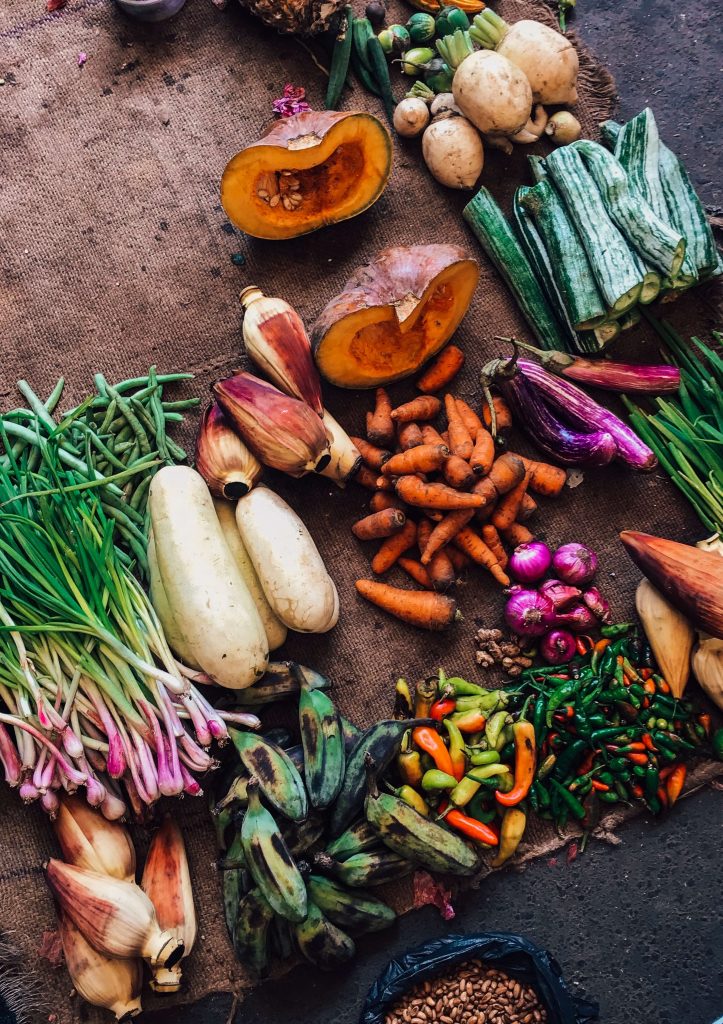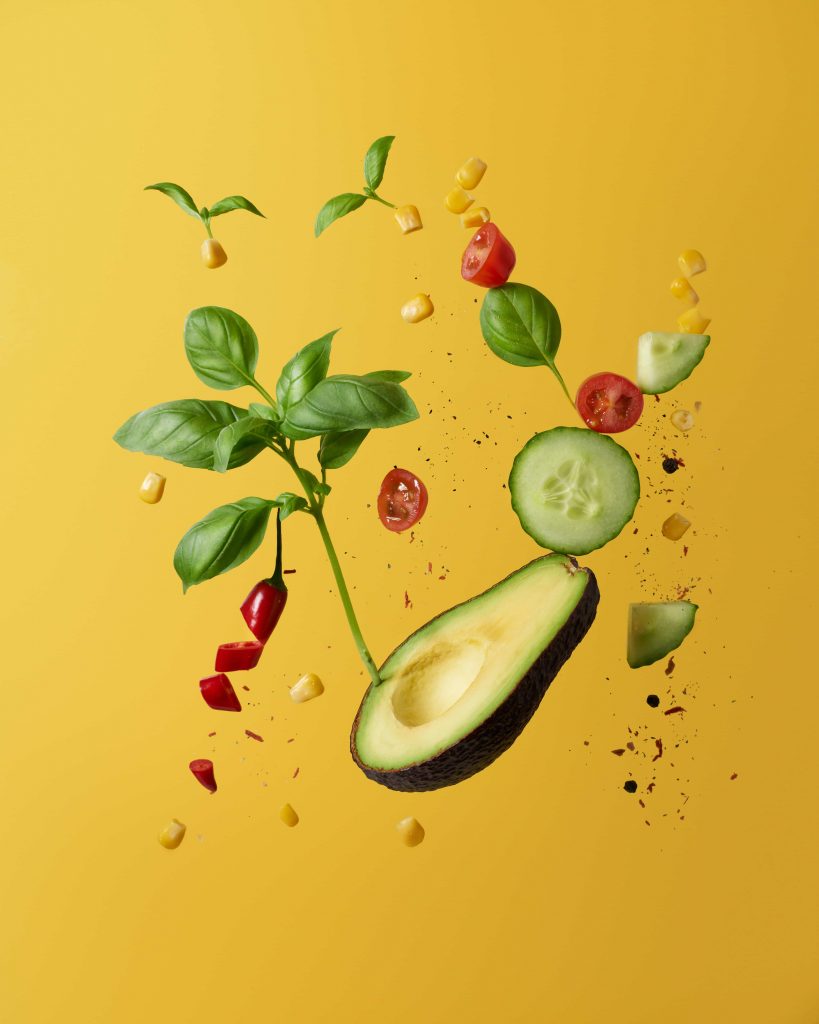I recently found an organic grocery store near me that specialises, among other things, in organic produce. So I decided to see what the hype was all about.
Firstly, what counts as organic food? Well, organic food is food grown without the use of synthetic pesticides, herbicides, or fertilisers. But, of course, that doesn’t mean that they don’t use pesticides, herbicides, or fertilisers, but only natural ones can be used! Organic foods are also not processed with irradiation or genetic engineering.
The benefits of organic food are many and varied, but some of the most commonly cited include improved human health and environmental sustainability.

Better Taste
The first thing I noticed when I tried organic vegetables was the flavour! The flavour of the tomatoes tasted like tomatoes, not a watered-down version of a tomato that we’re used to buying. Organic food generally tastes better than non-organic food. This is because organic food is grown without pesticides and other chemicals, meaning they take longer to grow, and the flavour can also mature. Some experts say that chemicals can also give food a bitter or sour taste. As a result, organic food is usually fresher than non-organic food, which contributes to its better taste.

Better for the Environment
Organic food is better for the environment than non-organic food. Why? Well, organic farming practices are designed to promote soil and water conservation. This helps reduce the number of chemicals and pesticides that enter the soil, which enters into the water cycle.
Organic farms also tend to use less energy than conventional farms.
Overall, organic food is better for the environment and your health. It is worth the investment if you can afford organic food. So keep a lookout for an organic grocery store near you!

Better Health
Organic food is often thought to be healthier than non-organic food. Why? Well, because organic food is grown without the use of pesticides and other harmful chemicals. Studies have shown that people who eat organic food have lower levels of pesticides in their bodies. For example, a study from 2019 in California confirmed that after just six days of eating a completely organic diet, pesticides and toxins decreased by 60.5%.
Because of such studies, some believe that eating more organic produce can lower rates of some chronic diseases, such as cancer, but studies haven’t yet been able to confirm this.
Overall, eating organic food has many health benefits. Let’s look at a few reasons why:
Better Nutritional Value
Organic food is often thought to be more nutritious than non-organic food. This is because organic food is grown without the use of synthetic fertilisers or pesticides. These chemicals can sometimes leach into the food, reducing its nutritional value.
Organic food is also generally fresher than non-organic food. This is because it does not have to travel as far to get to the consumer. In addition, food that is grown locally is typically fresher and thus more nutritious than food that has been shipped long distances. This is caused by respiration. After harvest, fruits and vegetables continue to breathe. According to a study by the University of Missouri, the process of respiration breaks down stored organic materials, such as carbohydrates, proteins and fats, and leads to a degradation of nutrients.
Overall, organic food has many benefits over non-organic food. It is more nutritious, fresher, and sometimes even cheaper.
Better Immune System
Organic food has been shown to provide several health benefits, including improved immune system function. The higher the nutritional value, the higher the content of minerals and vitamins in our food, and the more robust our immune system will be.
Organic food is also never GMO or processed, both of which are proven to lower the immune system.
Eating organic foods is a great place to start if you want to improve your immune system function. Make sure to include plenty of fresh fruits and vegetables and organic meat, dairy, and grains in your diet. And always buy them from trustworthy grocery stores near you!
Fewer Antibiotics
Again, organic food is grown without the use of synthetic pesticides and fertilisers. But what does it have to do with antibiotics? Well, it means that organic farmers must rely on natural methods to keep their crops healthy, and one of these methods is to use fewer antibiotics.
The overuse of antibiotics in agriculture has led to the development of antibiotic-resistant bacteria. These bacteria can cause severe illnesses in humans and are difficult to treat. By using fewer antibiotics, organic farmers can help to prevent the spread of these dangerous bacteria.
Overall, organic food has many benefits for both people and the environment. It is grown without the use of synthetic pesticides and fertilisers, and it is generally healthier for people.
More Antioxidants
Organic foods contain up to 40 per cent higher levels of antioxidants than conventionally grown foods. Antioxidants are essential because they protect your cells from damage. They can also help to reduce the risk of some chronic diseases, such as heart disease and cancer.
Studies have shown that organic foods contain higher levels of several important antioxidants, including vitamin C, beta-carotene, and flavonoids. These nutrients are important for good health. They can help to protect your cells from damage and reduce the risk of chronic disease.
Eating a diet rich in antioxidants is one of the best ways to promote good health. So, switching to organic food is a great place to start if you’re looking for ways to improve your diet.
Good for Your Heart ♥
One of the leading causes of cardiovascular disease is poor diet, alongside drugs and other factors. Organic food is good for your heart.
Studies have shown that people who eat a diet rich in antioxidants have a lower risk of heart disease. And as we mentioned before, organic foods are also rich in antioxidants, which can help to protect your cells from damage.
Less Cadmium
There are more antioxidants in organic food and more Cadmium. Don’t worry; I didn’t know what Cadium was until I started researching organic produce. Trace amounts of Cadmium won’t hurt you, but over time Cadmium can build up in the kidneys and cause kidney disease and fragile bones. So what are the leading causes of Cadmium intake? Smoking and low-quality fruit and vegetables.
Cadmium is also considered carcinogenic.
Fewer Chemicals and No GMOs
Organic food is grown without synthetic chemicals used for things like pesticides and herbicides; this means that it is better for your health, as you are exposed to fewer harmful chemicals. Organic food is also free from GMOs (genetically modified organisms). GMOs have been hypothetically linked to health problems such as cancer and infertility. Although, this has not yet been scientifically proven.

The Grocery Store Near Me
So, if you want to live a long and healthy life like me, think about what you put into your body. Organic food has many benefits over non-organic food. It is more nutritious, fresher, and sometimes even cheaper. It is also grown without the use of synthetic pesticides and fertilisers, and it is generally healthier for people. So, switching to organic food is a great place to start if you want to improve your health.
But be careful where you buy your organic produce—many promise that their produce is organic when it’s not. Look for an organic grocery store you can trust. The organic grocery store near me is called Maloneys Grocer. They seem to be kosher from snooping around and talking to the friendly staff. So if you’re in Sydney, pass by and take a look!


